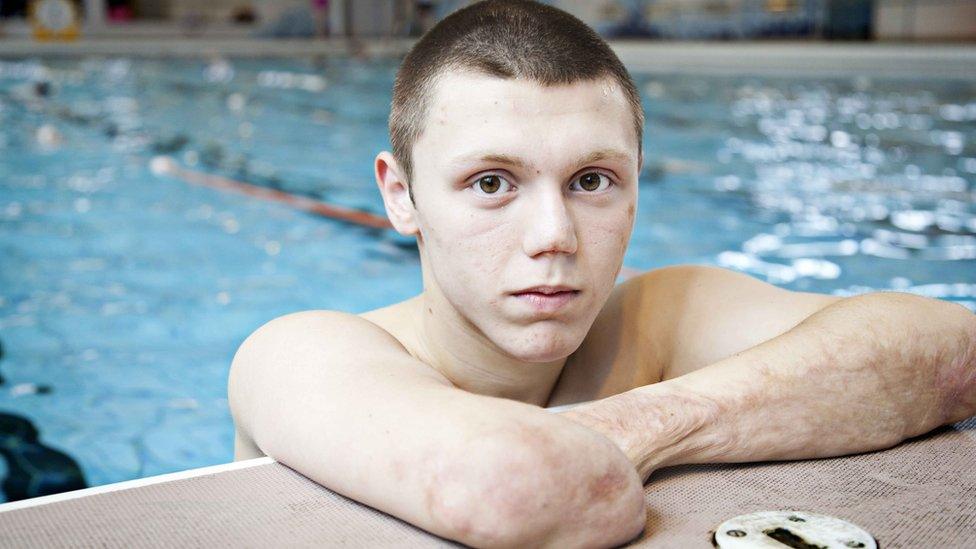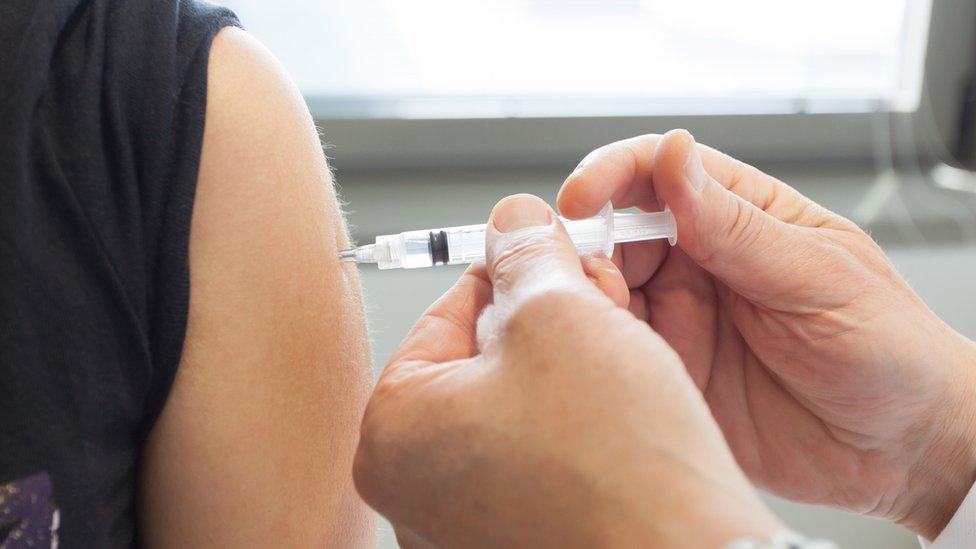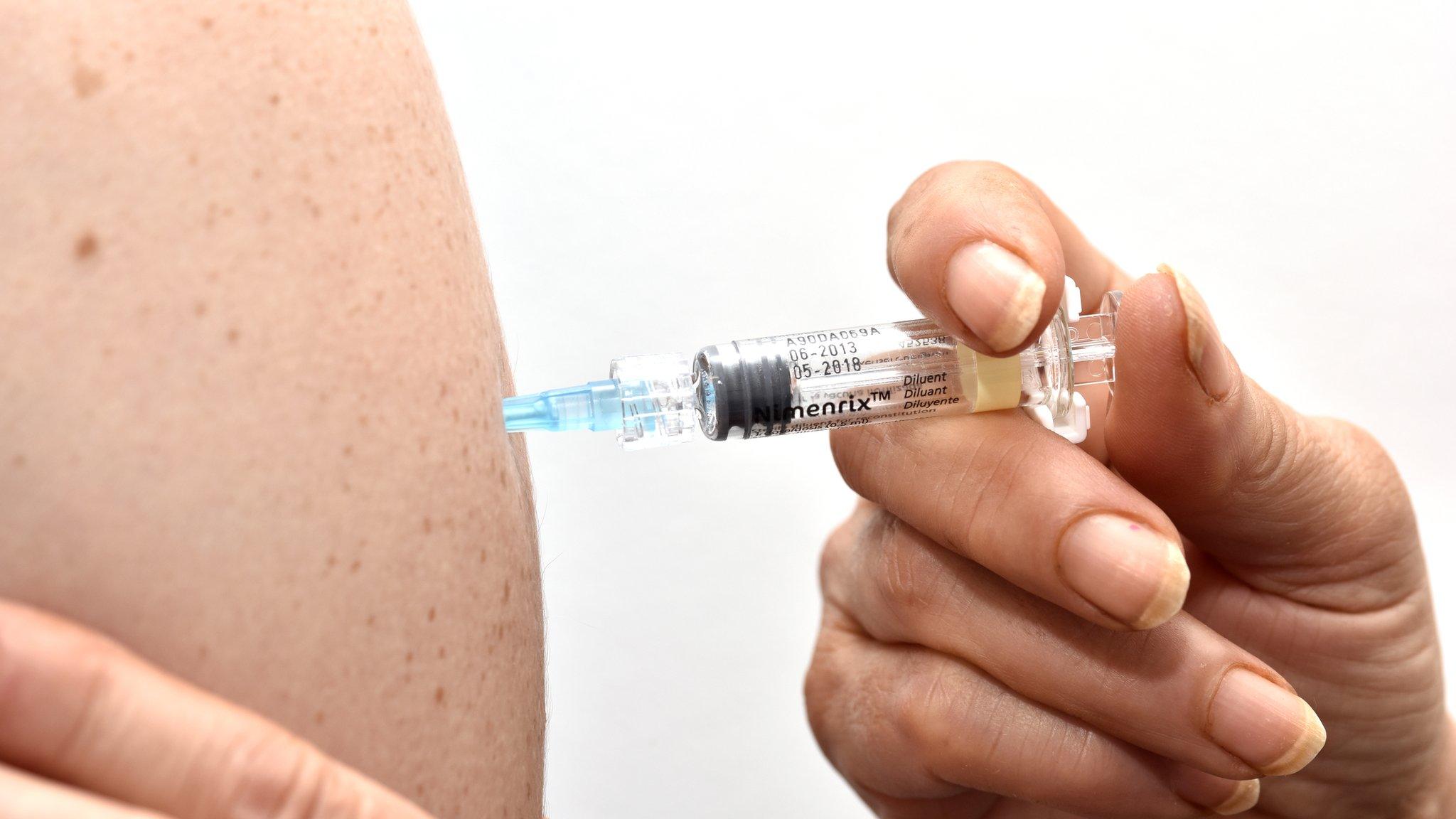Student's death spurs on meningitis campaigner
- Published

Twenty-year-old Lyndon Longhorne is from County Durham
The sudden death of a university student has added new impetus to the work of fellow student Lyndon Longhorne.
Lyndon, in the second year of a sports management degree at Northumbria University in Newcastle, is a youth ambassador for the charity Meningitis Now after contracting the disease himself when he was a child,
It was announced on Thursday that a 19-year-old studying at Northumbria, whose name has not been released, had died after contracting meningococcal meningitis (group W).
Lyndon, who is 20, says: "People are stunned. At first we didn't know what had happened but there was talk that it was meningitis. A lot of people didn't know what it was.
"People have been feeling very down because of everything that's been going on, but everyone's trying to pick each other up and trying to look forward."

Common signs & symptoms of meningitis and septicaemia
Fever, cold hands and feet
Vomiting
Drowsy, difficult to wake
Confusion and irritability
Severe muscle pain
Pale, blotchy skin
Spots/rash
Severe headache
Stiff neck
Dislike bright lights
Convulsions/seizures
Source: Meningitis Now

"As a survivor myself I just said 'oh gosh' I need to get out there and spread the word.
"We need to do whatever we can to make people aware of the symptoms."
Lyndon lost one leg below the knee and one above, as well as his right arm and part of the fingertips on his left hand after contracting meningitis when he was eight-and-a-half-months old.
"I was only a baby when it happened to me so I've adapted to everyday life but for me, every day is a challenge. However, I do love a good challenge!"

Those students and staff who have been in close contact with the student who died have been offered antibiotics as a precautionary measure.
In August, young people were being urged to get the Men ACWY vaccine that helps protect against meningitis W in particular - a highly aggressive strain of the disease that is on the rise.

Meningitis injection
The Men ACWY vaccine which protects against the A, C, Y and W strains of the disease - all forms that can cause death or disability
It was first introduced for new university students in the UK last year
Twenty-two people contracted meningitis W in 2009 in England, compared with almost 200 people in the last 12 months
Meningitis W infection is fatal in one in 10 cases and can lead to long-term health problems including deafness, epilepsy and amputations
New students are at risk as they often mix closely with groups of unfamiliar people - some who may unknowingly carry the bug

Experts say that Lyndon's age group is the hardest with which to communicate about the dangers of meningitis and it is hoped that youth ambassadors like him are a good way forward for spreading the word - something with which he agrees.
"I think that's definitely true.
"Because I'm in a wheelchair everyone says 'oh what happened?' and I don't mind telling my story - I go around and give motivational speeches about my experience and how I overcome things.
"Once I've talked to people and told them I had meningitis a lot of people say to me 'oh yes we've had the jab' but it's still important that people look out for symptoms."
Tyler Garwood death: Parents call for more meningitis research
And he says one of the complications for students is that the symptoms can be similar to flu or a hangover - both things that students are often likely to experience.
"I tell people that even if it feels like a hangover or flu, to check out their symptoms on the Meningitis Now website checklist. , external
"I put out cards in my halls that have a checklist of symptoms and if you tick off a few of them I tell people to go to the GP, or any more go to A&E.
"I'm trying to give out as many cards to people and put up posters."
He admits it is frustrating that people do not realise that immunisation can prevent deaths.
One issue for students is registering with GPs. They are encouraged to do so when they arrive at university and Lyndon says a lot have now done this since news of the death spread around campus.
"A lot of people who moved to the north-east from the south didn't have doctors. It was a shock to them. Hopefully people are now becoming aware.
"A lot of people from the north-east haven't had the jab too. I think it was 8% of people here had the jab, whereas nationally the rate is 17 to 18%."
"Hopefully now this rate will go up."
- Published29 September 2016

- Published17 August 2016
